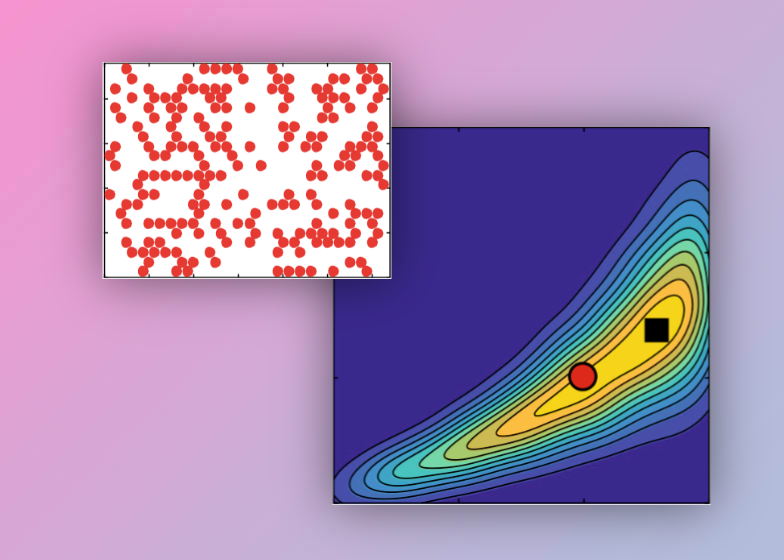A Bayesian computational approach to explore the optimal duration of a cell proliferation assay
AP Browning, SW McCue, MJ Simpson
Bulletin of Mathematical Biology (2017)
AP Browning, SW McCue, MJ Simpson
Bulletin of Mathematical Biology (2017)
Cell proliferation assays are routinely used to explore how a low density monolayer of cells grows with time. For a typical cell line with a doubling time of 12 hours (or longer), a standard cell proliferation assay conducted over 24 hours provides excellent information about the low-density exponential growth rate, but limited information about crowding effects that occur at higher densities. To explore how we can best detect and quantify crowding effects, we present a suite of in silico proliferation assays where cells proliferate according to a generalised logistic growth model. Using approximate Bayesian computation we show that data from a standard cell proliferation assay cannot reliably distinguish between classical logistic growth and more general non-logistic growth models. We then explore, and quantify, the trade-off between increasing the duration of the experiment and the associated decrease in uncertainty in the crowding mechanism.
